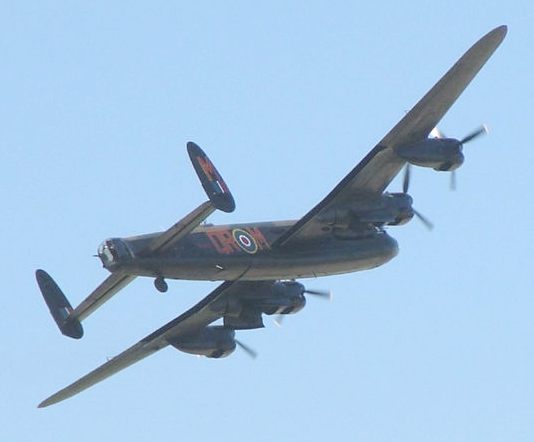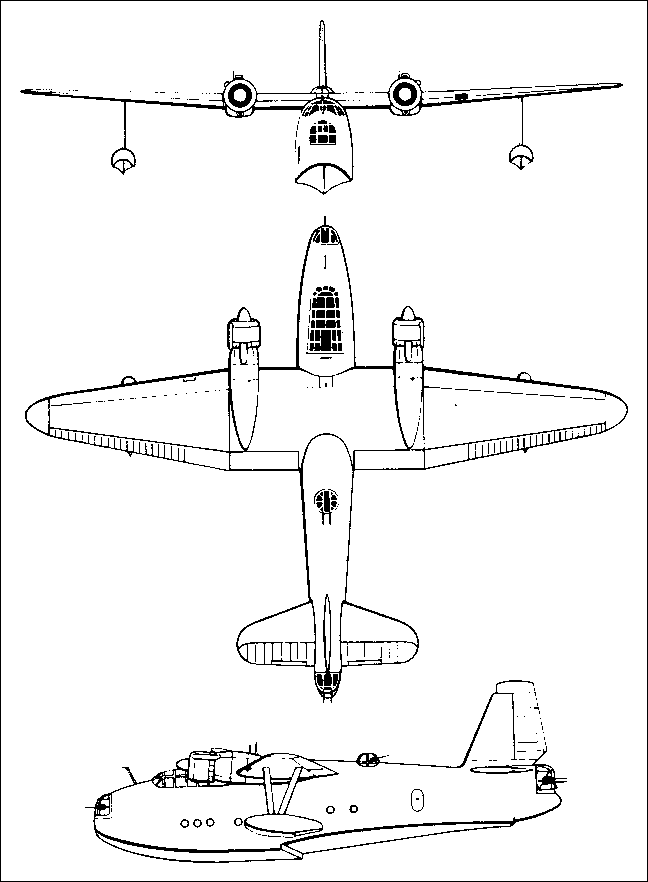Where the fook are they flying to?
Discussion
Unfortunately, I live in Rocester, Staffordshire (ST14).
Atleast once or twice a month, sometimes more often, we get some kind of old skool (WW2 era I guess) planes flying, very low, overhead. I have seen all sorts, from giant buggers to little speedy things (like this morning, which prompted me to post this thread). We also occasionally get something a bit more modern with a jet engine too. I don't know a lot about planes and so I couldn't tell you what they are.
Just curious as to why we seem to have an old skool plane flight path over the top of our house? Doesn't bother me, just seems strange as we never see any other types of planes around here. They all seem to fly NE - SW and then bank SWW about a mile away. Ive never seen them going in the opposite direction.
Anyone any idea where they are coming from or where they are going?
Atleast once or twice a month, sometimes more often, we get some kind of old skool (WW2 era I guess) planes flying, very low, overhead. I have seen all sorts, from giant buggers to little speedy things (like this morning, which prompted me to post this thread). We also occasionally get something a bit more modern with a jet engine too. I don't know a lot about planes and so I couldn't tell you what they are.
Just curious as to why we seem to have an old skool plane flight path over the top of our house? Doesn't bother me, just seems strange as we never see any other types of planes around here. They all seem to fly NE - SW and then bank SWW about a mile away. Ive never seen them going in the opposite direction.
Anyone any idea where they are coming from or where they are going?
Edited by Deluded on Friday 24th July 08:42
I assume they're flying down the valley as it gives more options than flying over the higher ground to your northwest.. and you are on the western edge of the East Midlands Airport airspace (but this only restricts over 4000ft, at which point you'd be unlikely to notice most smaller craft). By "WWII" stuff what do you mean exactly?
Tatenhill is near-ish but that looks like your average general-aviation airfield.
Tatenhill is near-ish but that looks like your average general-aviation airfield.
If people don't really know their planes it is easy for them to assume that anything that looks vaguely "old" might be WW2 era stuff. All those Yaks knocking about spring to mind immediately as they definitely have a WW2 era look and sound to them.
Edited by Eric Mc on Friday 24th July 09:48
by ww2 era I mean by looks. I have no idea what they actually are. Had a massive "bomber" looking thing fly over last month which cant have been more than a few hundred feet up.
a quick search for "bomber" on google returned this

Im not saying it was this, but looked like that sort of thing.
Not sure what airfields are near by. I know there is something RAF in Stafford but no idea what comes in and out of it.
a quick search for "bomber" on google returned this

Im not saying it was this, but looked like that sort of thing.
Not sure what airfields are near by. I know there is something RAF in Stafford but no idea what comes in and out of it.
I've routed direct over Rocester a few times, I think it's probably due to the airspace nearby as Nottingham airspace is down to 2,500' closeby. The Yorkshire airfields such as Breighton aren't so far away and if you're routing from/to the West Midlands you're naturaly routing that way if you wish to stay clear. Rocester is full of history isn't it.
http://www.realaero.com/
http://www.realaero.com/
I know this...
Base unknown, but there is a rogue group of Luftwaffe aircraft that don't know the war is over....
Fortunately, they're out of ammo and bombs but, if you listen really hard, you might hear them shouting Num Num Num Num Num Num Num Num Num Num Num Num as they pass overhead...
Strongly suspected be living on an old airfield near Rotherham, having tunnelled into a Jet station for fuel.
This is highly likely, as the people of Rotherham are a bit bewildered and likely to have difficulty distinguishing these aircraft from wasps.
Base unknown, but there is a rogue group of Luftwaffe aircraft that don't know the war is over....
Fortunately, they're out of ammo and bombs but, if you listen really hard, you might hear them shouting Num Num Num Num Num Num Num Num Num Num Num Num as they pass overhead...
Strongly suspected be living on an old airfield near Rotherham, having tunnelled into a Jet station for fuel.
This is highly likely, as the people of Rotherham are a bit bewildered and likely to have difficulty distinguishing these aircraft from wasps.
el stovey said:
Eric Mc said:
What's Google?
Maybe you shuld invest in this. It was originally published in 1941 but has been re-published recently. It'll help you tell "ours" from "theirs".

Top find Eric.Maybe you shuld invest in this. It was originally published in 1941 but has been re-published recently. It'll help you tell "ours" from "theirs".

I'm going to get one!
Even though it was printed in 1941, it doesn't include some important RAF types such as any of the three heavy bombers nor the Boeing B-17.
Eric Mc said:
el stovey said:
Eric Mc said:
What's Google?
Maybe you shuld invest in this. It was originally published in 1941 but has been re-published recently. It'll help you tell "ours" from "theirs".

Top find Eric.Maybe you shuld invest in this. It was originally published in 1941 but has been re-published recently. It'll help you tell "ours" from "theirs".

I'm going to get one!
Even though it was printed in 1941, it doesn't include some important RAF types such as any of the three heavy bombers nor the Boeing B-17.
Partly that. I think it was also cobbled together in a bit of a rush. Some of the drawings seem to be based on pre-war versions of the aircraft. In the case of the Messerschmitt 109, the silhouette looks more like a Jumo engined B, C or D variant rather than a Daimler Benz powered E. The Spitfire is also more like the early Mark I - with a flat canopy rather than the blown canopy fitted from 1939 onwards.
Some of the comments about the relative merits of the opposing aircraft amount to downright propaganda. For example, trying to imply that the SARO Lerwick was a capable flying boat is total nonsense. The type was an abject failure and withdrawn as quickly as replacement Sunderlands and Catalinas could be put into service.
Some of the comments about the relative merits of the opposing aircraft amount to downright propaganda. For example, trying to imply that the SARO Lerwick was a capable flying boat is total nonsense. The type was an abject failure and withdrawn as quickly as replacement Sunderlands and Catalinas could be put into service.
Edited by Eric Mc on Saturday 25th July 15:58
Once again, Eric proffers a wealth of little known information....
I'd never heard of the Lerwick, but a little digging generates a huge Blimey...


Whatever happened to If it looks right, it is right....?

I'd never heard of the Lerwick, but a little digging generates a huge Blimey...
Little digging said:
The twin-engine Sarò Lerwick was an attractive and compact design intended to meet a medium-range maritime reconnaissance requirement, Specification R. 1/36, but was a total failure, First flown before the end of Ì938, the prototype featured twin fins and. rudders but from the outset was found to be seriously lacking m lateral stability, and displayed a determination to roll and yaw in cruising flight, making the aircraft impossible to fly 'hands off, a damning indictment for a maritime patrol aircraft. In due course a single fin and rudder was fitted, but not until this was considerably enlarged was any improvement in the handling characteristics discernible. Starting with the seventh production example, wing incidence was increased and enlarged propellers fitted to the Hercules II radiais, but the latter were found unsuitable for operating on rough water. Moreover, stalling tests showed the Lerwick to have vicious traits, the stall under alighting conditions being accompanied by sharp wing-drop. Nevertheless 21 examples were produced and the Lerwick was first delivered for service with No, 209 Squadron m December 1939 at Oban, but after the type had flown a small number of semi-operational patrols it was decided to abandon further efforts to rectify its problems. The last eight aircraft were powered by Hercules IVs and the final example was completed m November 1940; one aircraft was flown by No, 240 Squadron but was lost on 20 February of that year, and some flew with No. 4 Operational Training Unit at Invergordon.
Was nice looking, though...

Whatever happened to If it looks right, it is right....?
It is a bit of a surprise that it turned out so bad. SARO had a long and distinguished history of building flying boats. The designer must have had an off-day.
It's one of the exceptions to the general rule that "if it looks right, it will fly right".
Another turkey that never performed properly was the Blackburn Botha - which ISN'T in the book.
It's one of the exceptions to the general rule that "if it looks right, it will fly right".
Another turkey that never performed properly was the Blackburn Botha - which ISN'T in the book.
Gassing Station | Boats, Planes & Trains | Top of Page | What's New | My Stuff




